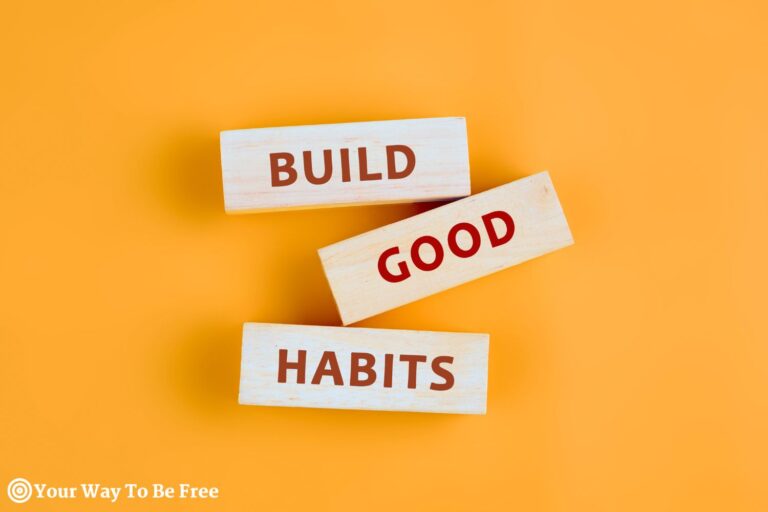Do you ever wonder how to become a better listener, especially in today’s world full of distractions? Many times, we hear people talking but aren’t really listening, and this can hurt our relationships, both at home and at work.
Think about a time when you were sharing something important with someone, and they seemed distracted or uninterested. It probably made you feel unimportant, frustrated, or even lonely.
Being a better listener isn’t just about hearing words; it’s about making others feel heard and understood. When you learn how to listen well, you can build stronger relationships and understand others better. This helps you communicate more effectively in all areas of your life.
So, how can you make this change? In this blog, you’ll find simple and practical tips to help you become a better listener and create deeper connections.
Why Good Listening Matters
Good listening goes beyond just hearing the words being said. It involves understanding, empathy, and making the speaker feel valued. For example, nodding along and summarizing what was said shows that you are engaged.
When you listen well, you show the other person that you genuinely care about what they have to say. People are more likely to open up and communicate honestly when they feel heard and understood.
Here are the main reasons why good listening is important:
- Builds Stronger Relationships: Listening well shows others that you care, which helps build trust and stronger personal connections.
- Improves Teamwork: In a work setting, good listening can help everyone stay on the same page, making teamwork more effective.
- Helps Resolve Conflicts: When people feel heard, they are more likely to communicate openly, which can lead to better conflict resolution.
- Boosts Self-Esteem: When someone feels truly listened to, it boosts their confidence and self-esteem, making them feel valued and respected.
- Encourages Open Communication: Good listening encourages a safe space where people feel comfortable sharing their thoughts and feelings, leading to more honest and open conversations.
8 Easy Tips to Become a Better Listener
1. Give Your Full Attention
Giving your full attention is one of the most important aspects of being a good listener. This means putting away any distractions and fully focusing on the person speaking. When you give someone your undivided attention, it makes them feel valued and respected. This leads to better communication and stronger connections.
- Put your phone down and make eye contact with the speaker.
- Avoid multitasking while someone is talking to you.
- Show through your body language that you are focused, such as nodding or leaning slightly forward.
2. Practice Active Listening
Active listening means truly engaging with what the other person is saying. It’s about showing that you care about their message by responding thoughtfully and asking questions. By practicing active listening, you can create deeper connections and make the speaker feel heard and understood.
- Reflect back on what the speaker has said by summarizing or paraphrasing.
- Ask open-ended questions to encourage them to elaborate.
- Use verbal cues like ‘I see’ or ‘That makes sense’ to show you’re listening.
3. Avoid Interrupting
Interrupting can shut down a conversation and make the speaker feel disrespected. It’s important to let the person finish what they are saying before you respond. Many people interrupt because they are eager to share their thoughts or think they already know what the speaker will say next. Avoiding interruptions can help create a more respectful and productive conversation. You could jot down your thought on a notepad to come back to it later.
- Wait until the person has finished their thought before responding.
- If you feel the urge to interrupt, take a deep breath and remind yourself to listen fully.
- Remember that the goal is to understand, not to simply get your point across.
4. Show Empathy
Showing empathy is about understanding the speaker’s perspective and acknowledging their feelings. It’s an essential part of good listening because it makes the speaker feel valued and supported. Empathy helps you connect with others on a deeper level, even if you don’t agree with everything they say. Empathy helps build trust, making it more likely that the speaker will share openly with you.
- Put yourself in their shoes and imagine how they might be feeling.
- Use phrases like ‘I can understand why you feel that way’ to validate their emotions.
- Avoid judging or dismissing their feelings, even if you don’t agree with them.
5. Ask Clarifying Questions
Asking clarifying questions helps you ensure that you fully understand what the speaker is trying to say. It also shows that you are genuinely interested in their message. Clarifying questions can prevent misunderstandings and make the conversation more meaningful. Wait for a natural pause in the conversation to avoid interrupting the speaker’s flow.
- Ask questions like ‘Can you tell me more about that?’ or ‘What did you mean when you said…?’
- Avoid making assumptions about what the other person is thinking.
- Clarifying not only helps you understand better but also makes the speaker feel heard.
6. Practice Patience
Practicing patience is key to being a good listener, especially when the speaker needs time to articulate their thoughts. Rushing someone or finishing their sentences can make them feel pressured or undervalued. By being patient, you create a safe space where they can express themselves fully.
- Don’t rush the conversation or finish someone’s sentences for them.
- Allow for pauses and moments of silence, it shows that you respect their time to think.
- Remember, being patient creates a safe space for open communication.
7. Listen Without Thinking About Your Response
Many of us plan our response while the other person is still talking, which means we aren’t fully listening. To be a better listener, focus entirely on what the speaker is saying without worrying about how you will respond. This allows you to truly understand their message and respond appropriately.
- Let go of the urge to immediately offer advice or solutions.
- Keep your mind open, even if you disagree with what is being said.
- Practice focusing on the speaker’s words, not your own thoughts.
8. Use Positive Body Language
Your body language says a lot about how engaged you are in the conversation. Using positive body language shows that you are attentive and interested in what the speaker has to say. Simple gestures can make a big difference in how the speaker perceives your level of engagement.
- Maintain eye contact, but avoid staring.
- Nod occasionally to show understanding and agreement.
- Avoid crossing your arms, as it can make you appear closed off.
Conclusion
Becoming a better listener takes practice, but it is one of the most rewarding skills you can develop. By giving your full attention, you can strengthen your relationships and make others feel truly valued.
The more you work on these habits, the more natural they will become, and the more meaningful your connections with others will be.
Start by implementing just one or two of these tips in your conversations today, and notice the difference it makes. Commit to practicing these tips regularly, and see how your relationships improve over time.
Remember, listening is a powerful way to show others that you care, and the impact of being truly present can transform not just your relationships, but your own sense of connection and fulfillment.







